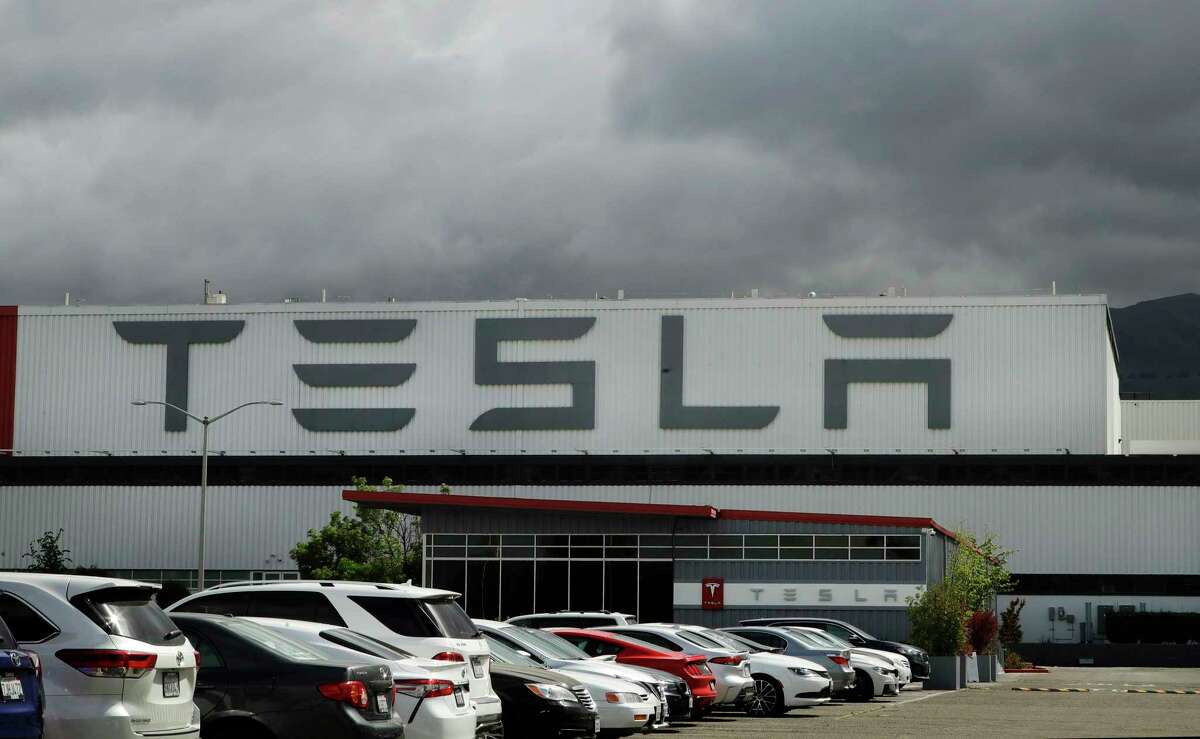In the latest accusations of racism at Tesla’s factory in Fremont, 240 Black workers have filed sworn statements that they were regularly subjected to racial slurs — evidence supporting damage claims by thousands of employees at the electric car plant.
Tesla, owned by billionaire Elon Musk, already faces a suit by the California Civil Rights Department claiming violations of state discrimination laws at the Fremont factory. In April, a jury awarded $3.175 million in damages to Owen Diaz, who said that in 9½ months at the plant he was repeatedly called racist names by supervisors, and that co-workers showed him racist cartoons and told him to “go back to Africa.”
U.S. District Judge William Orrick III, who presided over Diaz’s case, said in a post-trial ruling that “the jury heard that the Tesla factory was saturated with racism” and that the company did virtually nothing to support Diaz or punish his abusers.
Also in April, the state Supreme Court allowed Black employees to seek a judicial order requiring the company to acknowledge a climate of discrimination and take steps to end it.
Monday’s filing in Alameda County Superior Court was in support of that proposed judicial order and a class-action damage suit filed in 2017 on behalf of as many as 6,000 past and present Black workers at the plant. Their lawyers said 240 of the workers declared under oath that they were regularly called “n—–” and other slurs and saw swastikas and other hateful symbols displayed on the shop floor and in restrooms.
“The N-word and racist terms like ‘porch monkey,’ ‘boy,’ etc., were used not just once, but day-in, day-out at Tesla’s Fremont factory,” the attorneys wrote. “Though Tesla brands itself as futuristic, these and other centuries-old forms of anti-Black racism are so endemic at the Fremont factory that many workers refer to it as ‘the Plantation,’ or ‘the Slave Ship.’”
They said the lead plaintiff in the case, Marcus Vaughn, was hired as a factory worker in April 2017 and filed written complaints with both the company and Musk three months later saying he had been repeatedly subjected to racial insults and harassment. Tesla did not contact Vaughn or investigate his complaint, the lawyers said, and instead fired him in October 2017 for “not having a positive attitude.”
Tesla did not respond to a request for comment. In filings in the case, the company has denied failing to protect Black employees and said it did not hesitate to address racial abuse at the factory when it arose.
Reach Bob Egelko: begelko@sfchronicle.com; Twitter: @BobEgelko








